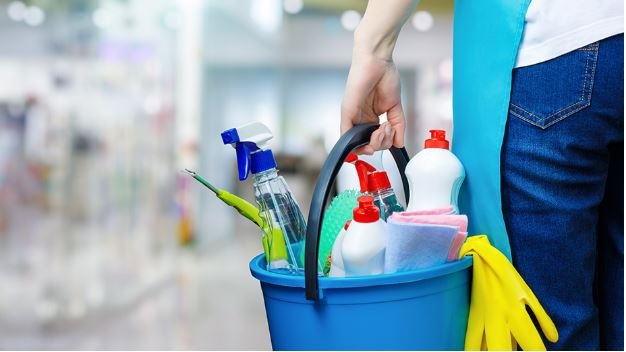Introduction
Grease trap cleaning Dubai is essential in the modern world for maintaining clean and hygienic kitchens, ensuring both health and safety standards.However, the impact of traditional cleaning methods on the environment has raised concerns. Adopting a sustainable approach to kitchen cleaning not only ensures cleanliness but also contributes to a healthier planet. This blog explores how grease trap cleaning Dubai can be performed in an eco-friendly manner, emphasizing practices that are effective, economical, and environmentally conscious.
Why Sustainable Kitchen Cleaning Matters
1. Healthier Living Spaces
A clean kitchen is the heart of a healthy home. It reduces the risk of food contamination, prevents the spread of bacteria, and promotes overall well-being. By choosing sustainable practices, you also minimize exposure to harmful chemicals.
2. Environmental Impact
Conventional cleaning products often contain harsh chemicals that can harm aquatic life and pollute water systems. Sustainable cleaning reduces these pollutants, conserving natural ecosystems and promoting biodiversity.
Key Principles of Sustainable Kitchen Cleaning
1. Reduce Waste
- Opt for reusable cleaning cloths and sponges instead of disposable alternatives.
- Purchase cleaning products in bulk to minimize packaging waste.
- Compost kitchen waste to reduce landfill contributions.
2. Use Eco-Friendly Products
- Choose biodegradable cleaning agents free from toxic chemicals.
- Look for products certified by eco-labels like USDA Organic or Green Seal.
- Make your own natural cleaners using vinegar, baking soda, and lemon juice.
3. Conserve Water
- Install water-efficient fixtures in your kitchen.
- Use a basin to wash dishes rather than leaving the tap running.
- Fix leaks promptly to avoid water wastage.
Steps to Adopt a Greener Cleaning Routine
1. Start with a Deep Clean
Before transitioning to sustainable practices, perform a thorough kitchen deep clean to set a clean baseline. Use eco-friendly products and tools to scrub surfaces, appliances, and corners.
2. Incorporate Natural Cleaning Solutions
Switch to homemade or organic cleaning solutions for daily maintenance. Some popular options include:
- All-Purpose Cleaner:
Mix equal parts water and vinegar with a few drops of essential oil for a fresh scent. - Degreaser:
Create a paste using baking soda and water to tackle stubborn grease stains. - Glass Cleaner:
Combine water, vinegar, and a teaspoon of cornstarch for streak-free shine.
3. Regular Maintenance
Consistency is key to maintaining a clean kitchen. Establish a routine for:
- Cleaning spills immediately to prevent stains.
- Washing dishes promptly to avoid buildup.
- Emptying trash cans regularly and sanitizing them to prevent odors.
Sustainable Kitchen Tools You Need
- Microfiber Cloths:
Highly durable and effective for cleaning without chemicals. - Reusable Brushes:
Opt for those made with bamboo or recycled materials. - Eco-Friendly Mops:
Look for washable mop heads or models made from recycled fibers. - Compostable Sponges:
Made from plant-based materials, they decompose easily.
Tips for Greener Commercial Kitchens
Sustainability isn’t just for homes—it’s equally important for commercial kitchens in restaurants, hotels, and catering businesses. Here’s how businesses can make a difference:
1. Implement Waste Management Systems
- Separate recyclable, compostable, and non-recyclable waste.
- Partner with local organizations for food waste recycling.
2. Use Energy-Efficient Appliances
- Upgrade to Energy Star-rated ovens, refrigerators, and dishwashers.
- Schedule regular maintenance to ensure appliances run efficiently.
3. Train Staff on Green Practices
- Educate employees about sustainable cleaning techniques.
- Encourage mindful usage of resources like water and cleaning supplies.
Benefits of a Sustainable Cleaning Approach
1. Financial Savings
Eco-friendly practices often lead to cost savings. Reusable tools, homemade cleaners, and reduced water usage can significantly lower your expenses.
2. Positive Environmental Impact
Adopting green cleaning methods helps reduce pollution, conserve resources, and minimize carbon footprints.
3. Enhanced Reputation
For businesses, demonstrating a commitment to sustainability can attract eco-conscious customers and build trust.
Challenges and Solutions in Sustainable Kitchen Cleaning
While adopting green practices is rewarding, some challenges may arise:
Challenge 1: High Initial Costs
Eco-friendly products and tools can be expensive upfront. Solution: Start small by replacing one product at a time and explore DIY solutions.
Challenge 2: Effectiveness Concerns
Some believe natural cleaners are less effective than chemical-based ones.
Solution: Research and experiment to find the right formulas that work for your kitchen.
Challenge 3: Habit Change
Transitioning to sustainable practices requires effort and consistency.
Solution: Set achievable goals and involve everyone in the household or team.
Conclusion
Sustainable kitchen cleaning is a win-win for both the environment and your health. Grease trap cleaning Dubai plays a vital role in reducing waste, conserving resources, and using eco-friendly products to create a cleaner kitchen while contributing to a greener planet. Whether you’re a homeowner or a business owner, making these changes is a step towards a more sustainable future.

